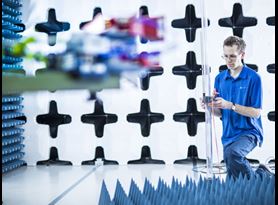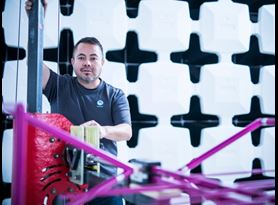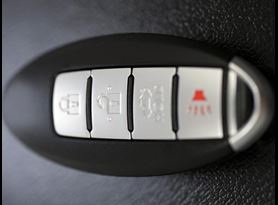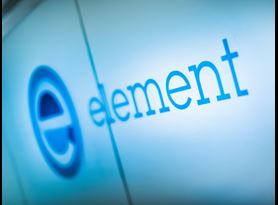How To Achieve FCC Approval for Wireless Radio Products
The FCC (Federal Communications Commission) is responsible for regulating the radiation standards of electronic devices. They make sure radio devices are not radiating at frequencies that cause harm and interference to the surrounding environment, equipment, and people. FCC approval for wireless devices can be obtained through two approaches, system approval, and modular approval.
System Vs modular approval
FCC system approval
System approval refers to traditional approval for equipment containing a radio transmitter. It includes the antenna, enclosure, radio, power supply, and electronics, and certification is required for each unique combination of radio(s). Approval involves a single certification for the whole device, and if adaptions are made, the device will have to go through the entire approval process again. As technology changes and products evolve, this approval process can create a lot of additional and unnecessary costs when it is time to make changes.
Multiple radios within the same host are allowed and can be covered by a single Grant of operation, so long as they are all pursued at the time of initial certification. If radios are added or removed, the host device will have to go through the entire accreditation process again and obtain a new FCC ID number.
FCC modular approval
Modular approval, on the other hand, is limited to the radio module. The module must be tested in a standalone configuration and, once verified, can be installed into another system without having to obtain new authorization. The radio module can then be incorporated into another product, such as a personal computer.
It is important to note:
- Modular approvals operate in either a single-modular transmitter or a limited single-modular transmitter. Detailed guidance from the FCC is available on the FCC's Knowledge Database under FCC KDB 996369.
- Modular approval can help manufacturers to reduce costs, save time, and establish a standard radio interface across multiple host devices. It also reduces the number and complexity of future Class II Permissive Changes. If FCC grant conditions are met, and the OEM/integration instructions are followed, then the radio module can be used inside of the host device without any additional certifications and minimal testing.
Integration of a previously certified radio module into a host device
As per section 2 of the KDB (below), the FCC strongly recommends that the host manufacturer accounts for FCC compliance for the Equipment Under Test (EUT) related to the digital circuitry AND the intentional requirements when module(s) are integrated into the host product.
An excerpt from FCC KDB 996369 D04 Module Integration Guide v01:
"Leveraging the certification of a modular transmitter has the advantage of reducing subsequent FCC filing requirements, but there are limitations on host product manufacturers in making modifications or changes to the modular transmitter and the types of antennas that can be used in final products. Host product manufacturers are responsible to follow the integration guidance and performing a limited set of transmitter module verification testing, to ensure the end product is in compliance with the FCC rules. Also, host product manufacturers are responsible for all additional equipment authorization and testing for technical requirements not covered by the module grant (e.g., unintentional radiator Part 15 Subpart B requirements, or transmitters used in the host that are not certified modules)."
FCC approval for multiple radio modules in one host
FCC approval can also be granted to numerous radio products within a single host. All modules must submit test data, including wireless compliance for simultaneous transmission configuration, and the modules must have a unique FCC ID.
How can Element help?
Element’s wireless experts can support you through the certification process for many key regulatory certifications. Our FCC-accredited labs provide rapid and effective testing to help you bring your products to the market.
Contact us
Find related Resources
Related Services

Commercial EMC Testing
At Element, we test thousands of products every year, having one of the largest capacities for electromagnetic (EMC) testing of commercial and industrial electronic devices.

Radio Certifications
Element offers wireless and radio certification services for FCC for USA, ISED for Canada, CE marking for Europe and MIC for Japan.

Radio and Wireless Device Testing
We work with everyone from Chipset Vendors to those integrating radio modules to enable you to deliver your wireless radio products to market.

USA FCC Certification
Element TCB provides FCC certification services of your wireless devices for entry into the United States market.

